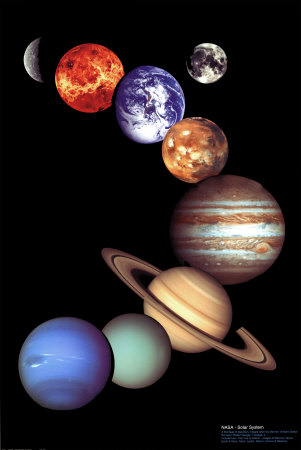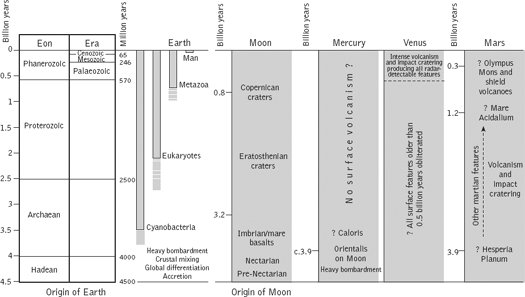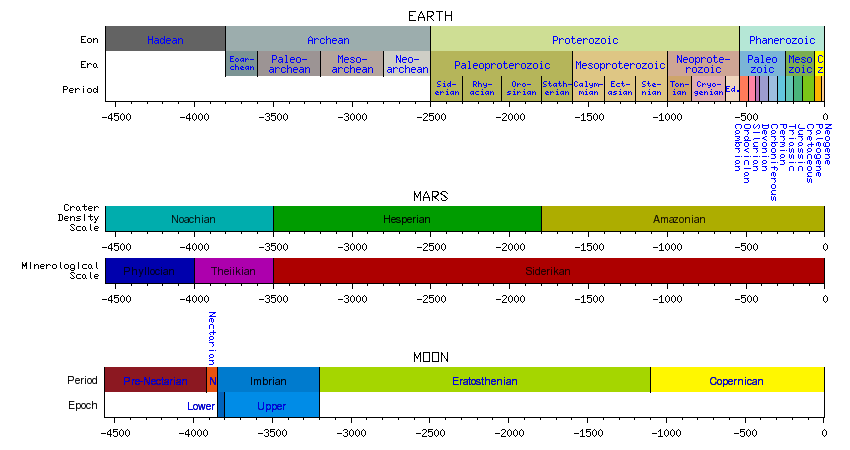
on Earth, Mars, and the Moon
| Palaeos |  |
Planetary Time Scales |
| Precambrian | Geologic Time Scales on Earth, Mars, and the Moon |

The Solar System - photo by NASA, Public Domain
 Radiometric ages for the main divisions of the terrestrial geological column; widely accepted dates for the appearance of terrestrial life forms; and absolute and speculative dates for the Moon, Mercury, Venus, and Mars. Diagram from Age and early evolution of the Earth and Solar System - The development of the Solar System (worthwhile article by G. J. H. Mccall, contains succinct and interesting overview of our understanding of the age and early evolution of the Earth and Solar System) |
Although astrophysics, astronomy, and cosmology offers insight into the early history and evolution of our physical universe, and the familiar big bang timescale based thereon, our knowledge of details of past ages of actual planetary bodies remains scanty. Apart from the Earth, only two other planetary bodies have been explored so far, the moon and Mars. Actually these offer quiote a good cross section of planetary types, from the lifeless and inert moon, to a planet that was once tectonically and perhaps also biological active but is now dead (Mars) (unless microrganisms turn up at the poles or some other promising location), and of course Earth represmets the ideal "garden world" as science fiction writers might say, a world with the right conditions for higher life, and on which has developed a rich biosphere. MAK110802

Geological Time Scales on Earth, Mars, and the Moon; adapted from Wikipedia
Comparing the geological time scales of Earth and Mars brings into stark focus how little has happened on Mars in the last two or three billion years. It is thought that the last time there was abundant liquid water on Mars was during the Noachian epoch, which ended 3.5 billion years ago. It is supposed that the simplest life-forms may have evolved on Earth about four billion years ago; however, life on Earth didn't get interesting until the "Cambrian explosion," about 500 million years ago, when most of the phyla extant today evolved. Nevertheless, in the window 4.0 to 3.5 billion years ago, it is possible that life got started on Mars. If so, how long it may have persisted is an open question, but unquestionably it would be very simple. Current evidence suggests that the last universal common ancestor of terrestrial life, a single-celled organism, lived during the early Archean eon, perhaps roughly 3.5 billion years ago. (Thomas Gangale, 2007)
| Page Back | Unit Up | Page Top | Unit home (you are here) |
Page Next |
original url graphic (I assume) copyright G. J. H. Mccall original url, graphic and text by Thomas Gangale, public domain 2007